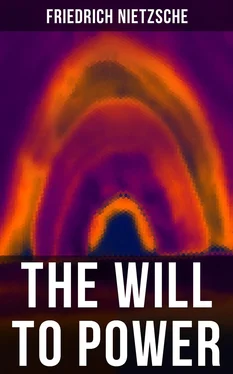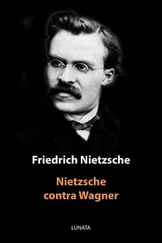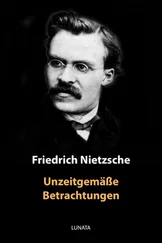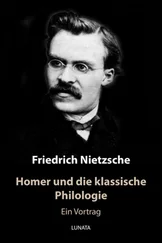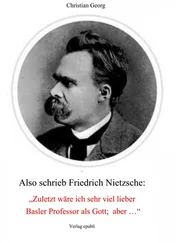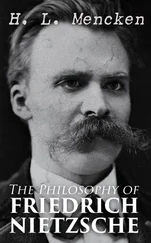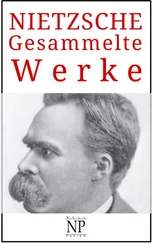107.
From the point of view only of his value to Germany and to German culture, Richard Wagner is still a great problem, perhaps a German misfortune: in any case, however, a fatality. But what does it matter? Is he not very much more than a German event? It also seems to me that to no country on earth is he less related than to Germany; nothing was prepared there for his advent; his whole type is simply strange amongst Germans; there he stands in their midst, wonderful, misunderstood, incomprehensible. But people carefully avoid acknowledging this: they are too kind, too square-headed—too German for that. "Credo quia absurdus est": thus did the German spirit wish it to be, in this case too—hence it is content meanwhile to believe everything Richard Wagner wanted to have believed about himself. In all ages the spirit of Germany has been deficient in subtlety and divining powers concerning psychological matters. Now that it happens to be under the high pressure of patriotic nonsense and self-adoration, it is visibly growing thicker and coarser: how could it therefore be equal to the problem of Wagner!
108.
The Germans are not yet anything, but they are becoming something; that is why they have not yet any culture;—that is why they cannot yet have any culture!—They are not yet anything: that means they are all kinds of things. They are becoming something: that means that they will one day cease from being all kinds of things. The latter is at bottom only a wish, scarcely a hope yet. Fortunately it is a wish with which one can live, a question of will, of work, of discipline, a question of training, as also of resentment, of longing, of privation, of discomfort,—yea, even of bitterness,—in short, we Germans will get something out of ourselves, something that has not yet been wanted of us—we want something more !
That this "German, as he is not as yet"—has a right to something better than the present German "culture"; that all who wish to become something better, must wax angry when they perceive a sort of contentment, an impudent "setting-oneself-at-ease," or "a process of self-censing," in this quarter: that is my second principle, in regard to which my opinions have not yet changed.
(c) Signs of Increasing Strength
Table of Contents
109.
First Principle: everything that characterises modern men savours of decay: but side by side with the prevailing sickness there are signs of a strength and powerfulness of soul which are still untried. The same causes which tend to promote the belittling of men, also force the stronger and rarer individuals upwards to greatness.
110.
General survey: the ambiguous character of our modern world —precisely the same symptoms might at the same time be indicative of either decline or strength. And the signs of strength and of emancipation dearly bought, might in view of traditional (or hereditary ) appreciations concerned with the feelings, be misunderstood as indications of weakness. In short, feeling, as a means of fixing valuations, is not on a level with the times.
Generalised : Every valuation is always backward ; it is merely the expression of the conditions which favoured survival and growth in a much earlier age: it struggles against new conditions of existence out of which it did not arise, and which it therefore necessarily misunderstands: it hinders, and excites suspicion against, all that is new.
111.
The problem of the nineteenth century. —To discover whether its strong and weak side belong to each other. Whether they have been cut from one and the same piece. Whether the variety of its ideals and their contradictions are conditioned by a higher purpose: whether they are something higher.—For it might be the prerequisite of greatness, that growth should take place amid such violent tension. Dissatisfaction, Nihilism, might be a good sign.
112.
General survey. —As a matter of fact, all abundant growth involves a concomitant process of crumbling to bits and decay : suffering and the symptoms of decline belong to ages of enormous progress; every fruitful and powerful movement of mankind has always brought about a concurrent Nihilistic movement. Under certain circumstances, the appearance of the extremest form of Pessimism and actual Nihilism might be the sign of a process of incisive and most essential growth, and of mankind's transit into completely new conditions of existence. This is what I have understood.
113.
A.
Starting out with a thoroughly courageous appreciation of our men of to-day:—we must not allow ourselves to be deceived by appearance: this mankind is much less effective, but it gives quite different pledges of lasting strength, its tempo is slower, but the rhythm itself is richer. Healthiness is increasing, the real conditions of a healthy body are on the point of being known, and will gradually be created, "asceticism" is regarded with irony. The fear of extremes, a certain confidence in the "right way," no raving: a periodical self-habituation to narrower values (such as "mother-land," "science," etc.).
This whole picture, however, would still be ambiguous : it might be a movement either of increase or decline in Life.
B.
The belief in "progress"—in lower spheres of intelligence, appears as increasing life: but this is self-deception;
in higher spheres of intelligence it is a sign of declining life.
Description of the symptoms.
The unity of the aspect: uncertainty in regard to the standard of valuation.
Fear of a general "in vain."
Nihilism.
114.
As a matter of fact, we are no longer so urgently in need of an antidote against the first Nihilism: Life is no longer so uncertain, accidental, and senseless in modern Europe. All such tremendous exaggeration of the value of men, of the value of evil, etc., are not so necessary now; we can endure a considerable diminution of this value, we may grant a great deal of nonsense and accident: the power man has acquired now allows of a lowering of the means of discipline, of which the strongest was the moral interpretation of the universe. The hypothesis "God" is much too extreme.
115.
If anything shows that our humanisation is a genuine sign of progress, it is the fact that we no longer require excessive contraries, that we no longer require contraries at all....
We may love the senses; for we have spiritualised them in every way and made them artistic;
We have a right to all things which hitherto have been most calumniated.
116.
The reversal of the order of rank. —Those pious counterfeiters—the priests—are becoming Chandala in our midst:—they occupy the position of the charlatan, of the quack, of the counterfeiter, of the sorcerer: we regard them as corrupters of the will, as the great slanderers and vindictive enemies of Life, and as the rebels among the bungled and the botched. We have made our middle class out of our servant-caste—the Sudra—that is to say, our people or the body which wields the political power.
On the other hand, the Chandala of former times is paramount: the blasphemers, the immoralists, the independents of all kinds, the artists, the Jews, the minstrels—and, at bottom, all disreputable classes are in the van.
We have elevated ourselves to honourable thoughts,—even more, we determine what honour is on earth,—"nobility." ... All of us to-day are advocates of life. —We Immoralists are to-day the strongest power: the other great powers are in need of us ... we re-create the world in our own image.
Читать дальше
